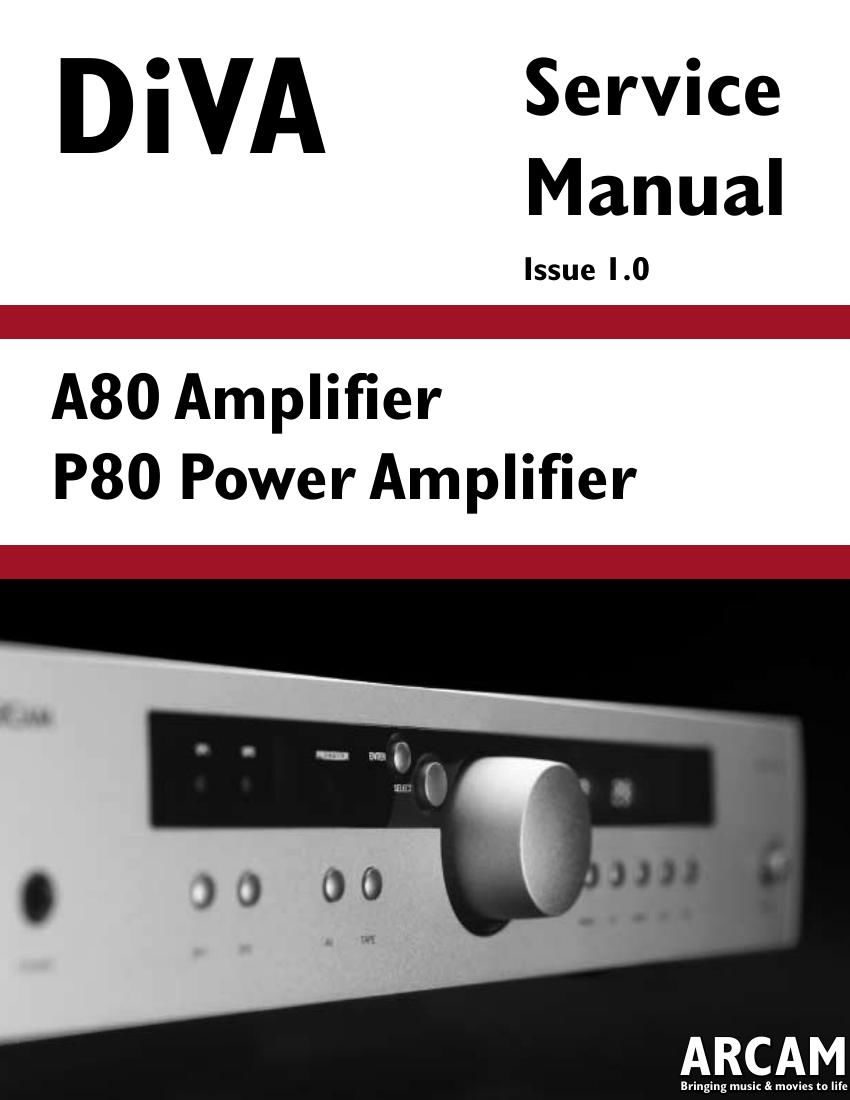Arcam A80 int sm
This is the 41 pages manual for Arcam A80 int sm.
Read or download the pdf for free. If you want to contribute, please upload pdfs to audioservicemanuals.wetransfer.com.
Page: 1 / 41

This is the 41 pages manual for Arcam A80 int sm.
Read or download the pdf for free. If you want to contribute, please upload pdfs to audioservicemanuals.wetransfer.com.
